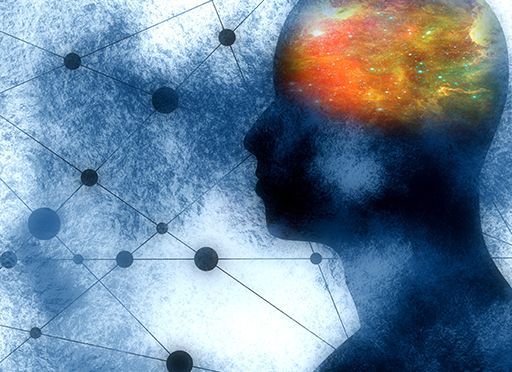Professor and psychiatrist Dr. Steve Peters offers an insightful model for understanding your brain and unconscious motivations and provides tools for managing both.

Meanwhile, Back in the Jungle
Undergraduate dean at Sheffield University Medical School and consulting psychiatrist Dr. Steve Peters, who works with the British Cycling and Sky ProCycling teams, tells how a wild “inner Chimp” romps around inside your brain. Paranoid and delusional, living by the law of the jungle, your Chimp causes damage if you leave it unattended.
Your inner Chimp is too powerful for you to control, Peters says, but you can manage it. He shows you how to tame your inner ape – or id – with his “Chimp Management System.” Peters helps you make the most of your brain’s “Human” and “Computer” components – “Gremlins,” “Goblins” and “Autopilots” – to become more confident, develop sustaining relationships, increase your organizational and work effectiveness, keep and stay motivated, and gain success and happiness.
Rage
Rob is waiting for his tardy girlfriend, Sally. The emotional part of Rob’s brain – his inner Chimp – takes control of his thinking. His staccato thoughts run rampant.
When Sally finally arrives, Rob blows up. Sally tells Rob she was helping an injured woman as onlookers used her cell phone to call for an ambulance. Rob’s “emotive judgment” made him look like an idiot.
Rob could have thought via the “Human mode,” by shifting from his Chimp or his brain’s limbic portion to the Human or frontal portion. Triggering this shift helps manage your inner ape.
Your frontal Human brain, limbic Chimp brain and parietal Computer brain make up what Peters calls your psychological mind. The Computer stores information provided by your Human and Chimp.
The Chimp needs to know that it is safe, so it is vigilant and continually looks for danger and therefore is prone to paranoia. Steve Peters
The Human, Chimp and Computer can each control your mind. They often conflict, although ideally they work together.
“Divided Planet”
The Human and the Chimp operate in your inner mind – the Divided Planet. Your Chimp specializes in irrational thinking. In an embedded dichotomy that Peters calls the “Chimp Paradox,” these emotions can be helpful or destructive.
When your Chimp hijacks your brain, it takes control of your thoughts and actions – to your detriment. Your Chimp intrudes when ideas and feelings arise that may provoke you to behave destructively. Think of the Chimp as your dog. You can’t change your dog’s basic nature, but you are responsible for its behavior.
A chimpanzee is five times as strong as a human being. Similarly, your emotional Chimp is five times stronger than you are. Don’t try to control it; manage it.Steve Peters
Your limbic Chimp brain and frontal Human brain have distinct personalities and agendas, Peters explains. Your Chimp is emotional, illogical and irrational. Your Human side is logical and rational. It relies on evidence to make judgments. The Chimp pursues self-survival; the Human focuses on self-fulfillment, success, happiness and societal contribution. The Chimp follows “Jungle Center” instincts, like the fight, flight or freeze response. The Human pursues candor, empathy, purpose and accomplishments. Your Chimp lacks perspective and sees everything as black or white, wrong or right, safe or threatening. Your Human sees context and shades of gray.
Chimp Management System
To manage your Chimp, Peters advises, exercise it by going off by yourself to rant and rave to release the Chimp’s feelings. Lock the Chimp up so it can’t do damage or give your Chimp a prize, like giving yourself a reward during a work break.
Remember: The Chimp’s emotional rants are not commands. Apply rational Human qualities to evaluate the Chimp’s opinions and then make reasonable decisions.
“Guiding Moon”
The Computer or parietal brain is your Guiding Moon. It provides mental stability and valuable information. Your Computer operates four times as fast as the Chimp and 20 times as fast as the Human. Peters points out that your Computer includes Autopilots – constructive beliefs that help you succeed. It also contains Gremlins and Goblins – destructive behaviors and beliefs.
Humans look for evidence and then draw conclusions. Chimps draw conclusions, then look for evidence to support them.Steve Peters
Your Chimp and your Human never act without checking with your Computer. Manage your computer by substituting helpful Autopilots for subversive Gremlins. Defuse Gremlins by never jumping to conclusions.
Change Your Defaults
When your Human and your Chimp feel good, your Computer runs things automatically. When the world becomes unsettling or dangerous, the Chimp or the Human leap into action. If the Chimp senses danger, it takes charge and will look for useful information in your Computer. If it finds reassurance, the Chimp retreats and the Computer or the Human takes over.
We can develop the emotional skills that will result in us becoming the person we want to be without being hijacked by our Inner Chimp.Steve Peters
Peters unlocks how you can change the Chimp’s default program with calming thoughts and actions: Your Human can manage your Chimp by substituting facts and rational thinking for biases and emotions.
Your True Self
Your Human, Chimp and Computer combine to form your personality. Deviations from your ideal self happen when your Chimp or Gremlins hijack your thinking. Your Chimp lives in a jungle. Your Human lives in society. Your Computer coordinates these radically different environments. The end result is the real world, where you want to survive and find happiness.
Stress, Peters teaches, can be useful because it tells you when something needs fixing. Deal with it productively; don’t just react. Identify the problems that build stress so you can build solutions.
The more time you spend reflecting on how your mind is operating, the more likely it is that you will improve your future functioning.Steve Peters
Don’t base your confidence on achieving your goals; base it on doing your best. The more security you achieve, the calmer your Chimp becomes. No one is ever fully secure. The more your Chimp accepts that reality, the less trouble it will cause.
Peters counsels you to diagnose the areas in which you can improve, identify the emotional skills you can develop and plan how to move forward. Determine how you think and act and who you want to become. Take charge of your thinking and your life.
Nomenclature
Professor Peters does an admirable job of detailing his jargon-rich – if slightly silly – universe of nomenclature that describes your brain/psychological functions and how they may often be at odds. Peters often extends his extended metaphor a little too far, not entirely unlike your inner Chimp might do. But even if you tire of Peter’s willfully basic naming system, his simple, cogent, actionable analysis of how your brain works for and against you can help you understand your thought processes, manage your feelings and become more content.






